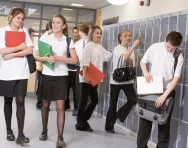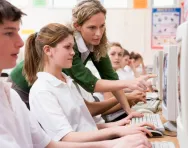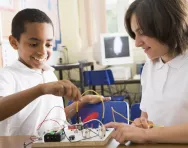Important update from TheSchoolRun
For the past 13 years, TheSchoolRun has been run by a small team of mums working from home, dedicated to providing quality educational resources to primary school parents. Unfortunately, rising supplier costs and falling revenue have made it impossible for us to continue operating, and we’ve had to make the difficult decision to close. The good news: We’ve arranged for another educational provider to take over many of our resources. These will be hosted on a new portal, where the content will be updated and expanded to support your child’s learning.
What this means for subscribers:
- Your subscription is still active, and for now, you can keep using the website as normal — just log in with your usual details to access all our articles and resources*.
- In a few months, all resources will move to the new portal. You’ll continue to have access there until your subscription ends. We’ll send you full details nearer the time.
- As a thank you for your support, we’ll also be sending you 16 primary school eBooks (worth £108.84) to download and keep.
A few changes to be aware of:
- The Learning Journey weekly email has ended, but your child’s plan will still be updated on your dashboard each Monday. Just log in to see the recommended worksheets.
- The 11+ weekly emails have now ended. We sent you all the remaining emails in the series at the end of March — please check your inbox (and spam folder) if you haven’t seen them. You can also follow the full programme here: 11+ Learning Journey.
If you have any questions, please contact us at [email protected]. Thank you for being part of our journey it’s been a privilege to support your family’s learning.
*If you need to reset your password, it will still work as usual. Please check your spam folder if the reset email doesn’t appear in your inbox.
The parents' guide to secondary school: KS3 and KS4 explained
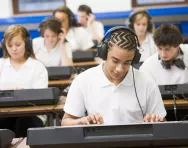
Moving up to secondary school marks the start of a new Key Stage for children. Between the beginning of Year 7 and the end of Year 11, they’ll progress through Key Stages 3 and 4. We take a look at what’s involved in each Key Stage.

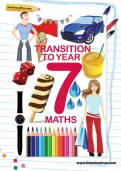
Download Year 6 to 7 transition packs
- English & Maths transition packs
- Practise journalistic writing, figurative language, persuasive text and more
- Revise key maths methods and concepts
Key Stage 3
KS3 covers Years 7, 8 and 9: the first three years of secondary school. Children in KS3 have to study 12 (or 13) compulsory subjects:
- English
- Maths
- Science
- History
- Geography
- Modern foreign languages (at least one)
- Design and technology (DT), including cooking and nutrition
- Art and design
- Music
- PE
- Citizenship
- Computing
- Welsh (in Wales)
Key Stage 4
KS4 comprises Years 10 and 11, when students are working towards GCSEs. Some subjects are compulsory; these are known as the core and foundation subjects.
The core subjects are:
- English
- Maths
- Science
- Welsh (for students in Wales)
The foundation subjects are:
- Computing
- PE
- Citizenship
Schools will also offer a number of other GCSE subjects, and pupils choose which they’ll take alongside the core and foundation subjects in Year 9. They have to offer at least one subject from each of the following areas:
- Arts (e.g. art and design, music, drama)
- Design and technology (e.g. DT, graphics, cooking and nutrition)
- Humanities (e.g. combined humanities, history, geography, RE)
- Modern foreign languages (e.g. French, German, Spanish, Mandarin Chinese)
In most schools, students will take at least one GCSE from each of these categories. Often, their choices will be restricted, for example by their timetable (so if music is timetabled at the same time as German, they’ll only be able to take one), or by ability (for example, in some schools, only the highest-achieving pupils take two languages).
In science, students may take single, double or triple science. Confusingly, this doesn’t mean they have separate lessons and take separate GCSEs in biology and/or chemistry and/or physics. Rather, each GCSE incorporates all three subjects: so double science counts as two GCSEs, and triple science as three, with the teaching time increasing proportionately. It’s common for only the brightest students to take triple science.
Academic students will also be encouraged to take the English Baccalaureate, or EBacc. This is not a separate qualification, but a combination of six different GCSEs: English, maths, two sciences, a language and either history or geography. They earn the EBacc by getting at least a grade C in each of these subjects. School league tables show the number of pupils achieving the EBacc, and top universities also look favourably on the qualification.
It’s up to schools to decide how many hours of teaching they allocate to each subject, but the core subjects typically have more teaching time. This is because they are ‘double weighted’ in league tables to reflect their importance (in other words, each GCSE result in English, maths and science is worth two GCSEs in other subjects), so it’s in schools’ interests to make sure students get good results in these subjects.
Other compulsory subjects in KS4 are RE and SRE. As in KS3, parents can choose to withdraw their child from some or all of these lessons. GCSEs may be taken in these subjects, but are not mandatory.
It’s normal for students to do two hours of homework a night in KS4. This will increase as their GCSEs get nearer, when they’re expected to revise as well as completing set homework tasks.
BBC Bitesize has a range of starting secondary school resources offering support and information about all aspects of secondary school life for parents and children.

